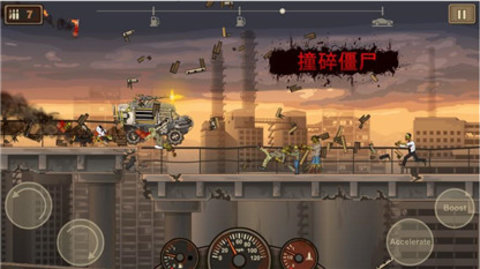![Idle Lumber Mill Mod Apk [Speed Hack] 2.1.1](https://www.kofcn.org/uploads/20240321/logo_65fb8914dce3a1.png)
Idle Lumber Mill Description
Idle Lumber Mill is a casual simulation mobile game that gives players a taste of what it's like to run a lumber mill. The game combines strategy and placement elements as players build and upgrade lumber mill facilities and manage resources to achieve business success. The following is a 600-word introduction to the game:
Game Overview:
Idle Lumber Mill is a light-hearted and fun mobile game that puts the player in the role of a lumber mill owner with the goal of building a thriving lumber business. In the game, you'll log trees from the forest, transport the logs back to the mill for processing, and then sell the wood for a profit. By constantly upgrading your facilities and managing your resources, you can build a successful timber business empire.
Game Features:
Vivid Lumberyard: The lumberyard in the game features colorful graphics that vividly recreate the process of lumber processing. You can see trees being cut down, logs being processed, and the final lumber being made.
Variety of Wood Types: The game offers many different types of wood, such as oak, pine, cherry, etc. Each type of wood has its own unique characteristics. Each type of wood has its own unique value and use, which the player needs to choose skillfully.
Building and Upgrading: Players can build a variety of wood processing facilities, including lumber yards, panel mills, woodworking workshops, and so on. By constantly upgrading these facilities, you can increase production efficiency and unlock new types of wood.
Resource Management: The game requires players to manage resources wisely, including logs, workers, transportation tools, etc. You need to make sure you have enough logs to keep the game going. You need to ensure that there is an adequate supply of logs, and that workers and transportation resources are allocated appropriately to ensure smooth production.
Placement game element: There is a placement game element in the game, which means that your lumber mill will continue to operate even when you are offline. This encourages players to upgrade and expand their business.
Achievements and Quests: There are various achievements and quests to complete in the game, which can be rewarded and increase the speed of the game.
Gameplay:
In Idle Lumber Mill, the player starts with a small lumber mill and then has to keep logging, processing lumber, and selling the products to earn coins. Coins can be used to build new facilities, upgrade existing ones, and manage the business.
The goal of the game is to expand your lumber business, increase productivity, increase the amount of coins you earn, and ultimately build a prosperous lumbering empire. You can achieve these goals by constantly upgrading and optimizing your facilities.
Idle Lumber Mill MOD APK - MOD Speed Hack features detailed description
Variable speed version of the game that speeds up or slows down the speed of the game. This kind of version usually adds an option to control the game speed inside the game, and players can choose the game running speed according to their needs.
The accelerated version of the game allows players to pass the game quickly, saving time and increasing efficiency. Accelerated versions usually add some extra challenges to the game, such as time limits, to increase the difficulty of the game.
Decelerated versions allow players to better control the pace of the game, take their time to experience the game's details and graphics, and enjoy the atmosphere of the game.
It should be noted that the variable speed version of the game may affect the balance and experience of the game, for example, the accelerated version of the game may cause the game difficulty to become too low, while the reduced speed version of the game may cause the game pace to be too slow and players may feel bored. Therefore, players need to consider carefully when choosing the variable speed version of the game and choose according to their preferences and needs.
Idle Lumber Mill MOD APK Advantages
Simulation games are a category of games based on the simulation of the real world, where the player usually has to take on a specific role or manage a specific organization to win the game or achieve a goal by simulating various elements of the real world such as economy, politics, and society. The goal of such games is to present a highly interactive and meaningful gaming experience through scenarios that simulate realistic situations or fictional scenarios.
There are various types of simulation games, including business simulation, life simulation, agriculture simulation, city building, transportation, etc. Among them, management simulation games are one of the most representative genres, such as SimCity and King of the Zoo. These games usually require players to manage a virtual organization or business, including finance, marketing, supply chain management, etc., and players need to achieve specified goals within a certain period of time.
Idle Lumber Mill typically put players in the role of a specific character, such as the Sims series, where players can customize a virtual character and perform life simulations, including buying furniture, interacting with other virtual characters, working, and developing a career. These games are usually played in an open-world format, allowing players to freely explore the virtual world and interact with other characters.
Agricultural simulation games, on the other hand, allow players to take on the role of a farmer and win the game by managing a farm. These games typically involve growing, harvesting, and selling crops, as well as managing livestock and other farm production activities.
City building games, on the other hand, put the player in the role of a mayor or city planner who builds and manages a city in order to win the game. These games usually require players to build a complete city within a certain time frame, including buildings, infrastructure, transportation, public services, and other aspects.
Transportation simulations allow players to take on the role of a transportation company operator and win the game by managing freight and passenger transportation operations. These games usually require players to build a complete transportation network in the virtual world, including air, rail, road, and sea transport.




























